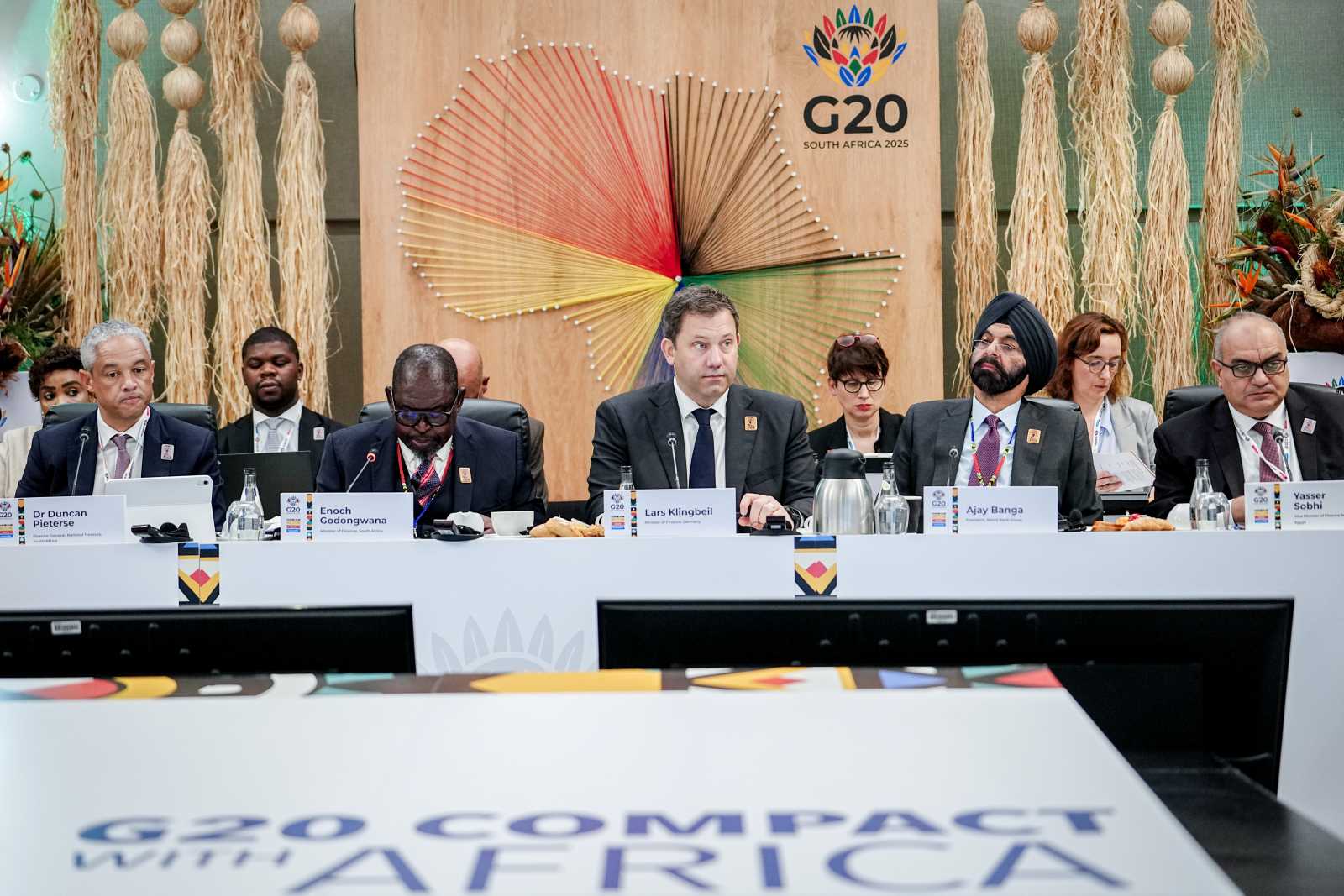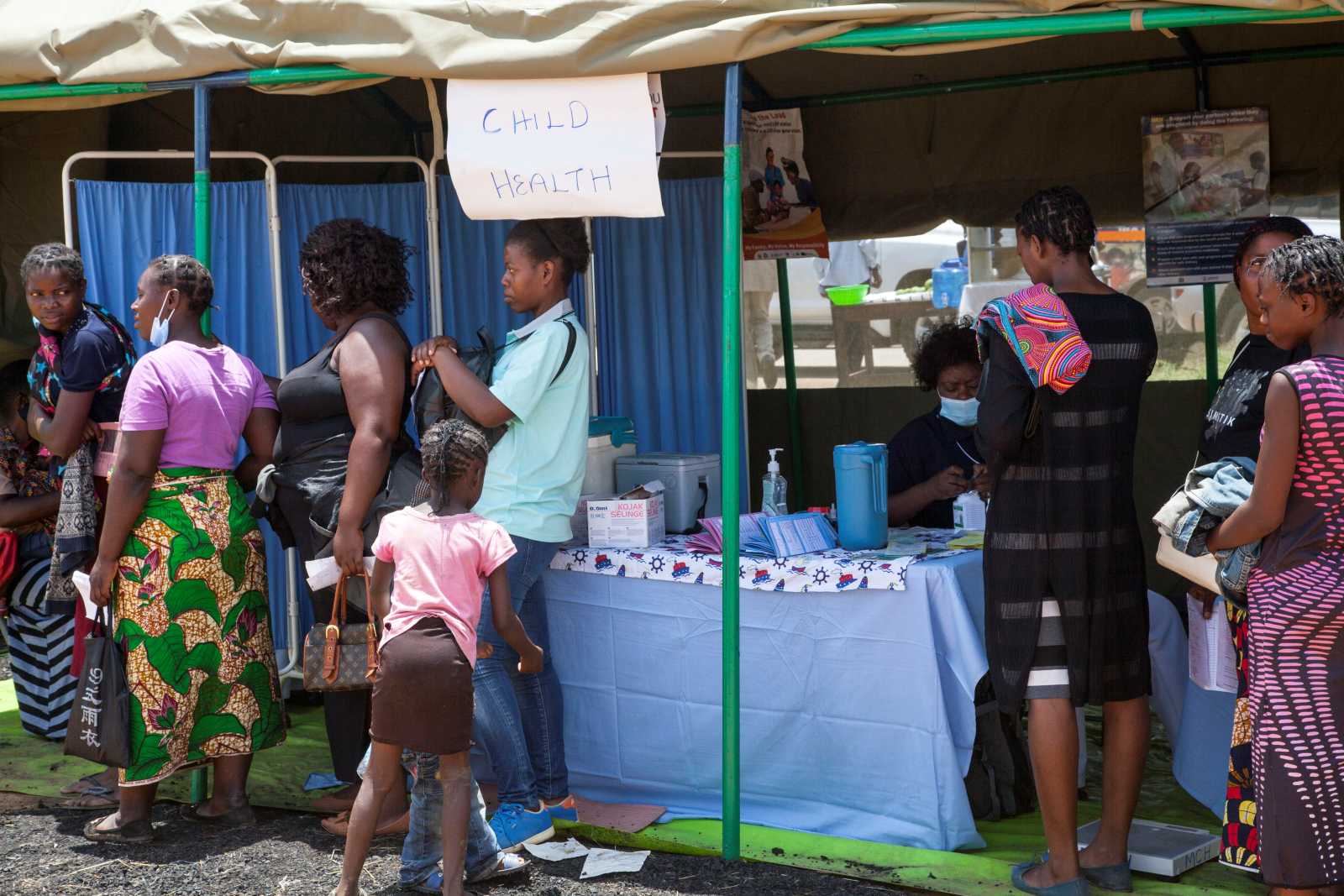Fusion von GTZ, InWEnt, DED
José Fernando Arns zu Reformplänen
Internationally, poverty has only been successfully fought where the private sector has thrived. How can and should a donor agency best support your country in this respect?
By developing waste recycling projects, environmental education programs in companies and the grassroots communities where these companies are settled. Companies must meet environmental legislation and many do not know how to dispose of their rubbish. Following the example of the Catholic University of Paraná’s (PUCPR) ECOHABITARE, develop a study of recyclable materials that can be used as raw material for the production of green bricks, partitions, furniture, and a whole range of products. In this way these companies could dispose adequately of their waste and comply with current legislation.
The Universities could assist these companies in the development of equipment for the production of prototypes. Today we need to think of forming networks of people and organizations in the search for solutions. In this way we will be able to help companies create databases in their areas of need, as in the case of the environmental area. Thus they will no longer have to pay expensive fines due to the lack of waste management. In this aspect we could also analyse the processes; which must be sustainable and, in parallel, assist with environmental education in companies and state schools.
The Millennium Development Goals stress progress in specific sectors. How can and should a donor agency for technical cooperation best support your country in this respect?
By providing subsidies for continued education in the health, education and environmental areas. These are projects that need to list short-, medium- and long-term actions. The participation of schools, businesses and NGOs such as Pastoral Care for Children which carries out projects on breastfeeding and a multi-vitamin mixture using vegetables that are normally discarded and thrown away. We need to highlight programmes of assistance to women, children and the elderly. Training of community leaders to attend programmes to combat HIV / AIDS, malaria, tuberculosis and other local and regional diseases and needs.
Continual monitoring of the entry of funding from national and international entities for the communities. We unfortunately see a great deal of embezzlement which excessively prejudices the communities. One way to counter this corruption is to offer training programmes for community leaders in organising social and environmental projects; thus recuperating local and regional identities and human, technical and scientific potential, as well as training new juvenile and adult players in schools, businesses and NGOs, among others.
To strengthen the core group it will be necessary to construct a geo-referenced database of information available to the communities so that they can seek and exchange information and experiences with other locations. The precariousness of the network of involved players is quite large. We need to guide joint activities and map skills, abilities and human technical and scientific potential. The skills which combine theory and practice in the pursuit of sustainability of projects funded by the private sector through fiscal incentive laws for companies involved in projects and programmes of, social, economic, cultural and environmental reach, thus making well-developed procedures sustainable.
Offer training courses and provide employment opportunities, training individuals in accordance with the local market’s demand. From the start, the projects should be developed jointly with the community or community leaders, giving birth to participatory management. Only a network of interdisciplinary players and participatory institutions will promote and improve the quality of life in the communities.
The ongoing training of the involved players is therefore necessary, principally of the future facilitators of projects, who need to develop skills as multipliers of knowledge where developing values such as mutual respect, love, brotherhood, solidarity, affection, friendship and hope is one of the foundations of a new form of behaviour. Upon this foundation we can build a process of teaching, research and learning together with local communities and facilitators. In this case the database will also assist in the organisation and consolidation of important tasks.
The path to sustainability is the formation of a network of interdisciplinary players and national and international institutions in continued pursuit of the informal (practical) and formal (theory) education of the communities. This exchange of experiences through a community-available database, and by that I mean on-line, will provide important information for local schools and the sharing of projects.
The Paris Declaration and the Accra Agenda for Action stress the relevance of enhancing government capacities. How can and should a donor agency best support your country in this respect?
Local communities need to develop participatory management, leaving the paternalistic manner behind. The leaders should form a functional body to train new protagonists who know the communities they are working with well. This facilitator must have many skills, but it is important to emphasise the skills of listening, patience with others, respect, love for the cause in hand and altruism, as well as knowing how to create a peaceful environment, always reviving important team, family and community values by creating a strong, cohesive local identity and building a healthy local environment.
This means that it will always be necessary to continuously train, develop and strengthen local facilitators who plan to build an environment within a systemic view, where public and private entities work together with grassroots communities. They should propose projects and the creation of groups of mixed national and international interdisciplinary and inter-institutional action.
This group can also provide support to politicians in the formatting of local public policies that meet local and regional needs. The socio-digital inclusion of communities should be a priority action, helping them with ongoing on-line training courses. Thus the data and information may be made available to this working group in a local database.
The participatory planning with local leaders greatly favours the development of sustainable projects, lower investment and control over expenditure, investments and minimises the possible diversion of funds by making procedures more transparent and reliable to the funding bodies.
As soon as the individual community feels included in the process and know its responsibilities, it feels equally responsible for the smooth development of projects. Thus the social inclusion of children, youths, adults and the elderly in various tasks of the community is possible.
Good and responsible governance have figured high on the development agenda ever since the World Bank's World Development Report of 1997. How can and should a donor agency best support your country in this respect?
The local government must come together with companies, universities and especially local communities. The most viable route to reach the community is through local state and private schools. The knowledge developed in schools can function as a disseminator of knowledge. The school’s infrastructure can serve for the development of research and practical experience, together with the communities. The school takes alternative solutions to the community based on its reality.
To ensure the financial sustainability of projects fiscal incentive laws arising from converging public legislation are necessary to meet the demand of social and environmental actions. This type of law may motivate companies to financially support the projects in the schools. At the same time a network of national and international companies and public bodies could be established to provide continuing support for projects, training, employment and income, among others.
We optimise the SCHOOL structure by creating a new identity that motivates students to work in a practical way in their community. Citizenship is put into practice in the form of junior clubs or councils. This brings life to both the community and the school and results in the formation of new players within groups of children, youths and adults. On the other hand, we need to offer quality learning by giving financial and training support to teachers and facilitators of the school and community.
In regard to the past, what are strong points of GTZ, InWEnt and DED that you would want to last?
GTZ, InWEnt and DED significantly contribute to the disclosure, development of research and inter-institutional cooperation, resulting in the promotion of youths and adults. The sharing of information and the exchange of experiences between professionals contributes greatly to the optimisation of resources and the effectiveness of projects. It develops motivational values, a mix of theories and practices among different social, cultural, economic and environmental realities around the world.
This is the way forward in the optimisation of human and financial resources and the exchange of information, theoretical and practical ideas around the world, interacting with different facilitators and local decision-makers. It brings together information and optimises methods of decision-making with those who make them and facilitators, including: companies, NGOs, local communities and both private and public agencies. It is a great exchange of experiences in the teaching, research and practical areas.
We should remember the importance of partnerships between Brazilian and overseas state schools, in this case German socio-economic, cultural and environmental projects. These partnerships can encourage the exchange of information and experience, as well as the exchange of students and teachers, resulting in the training of young and adolescent players and the construction of citizenship.
















